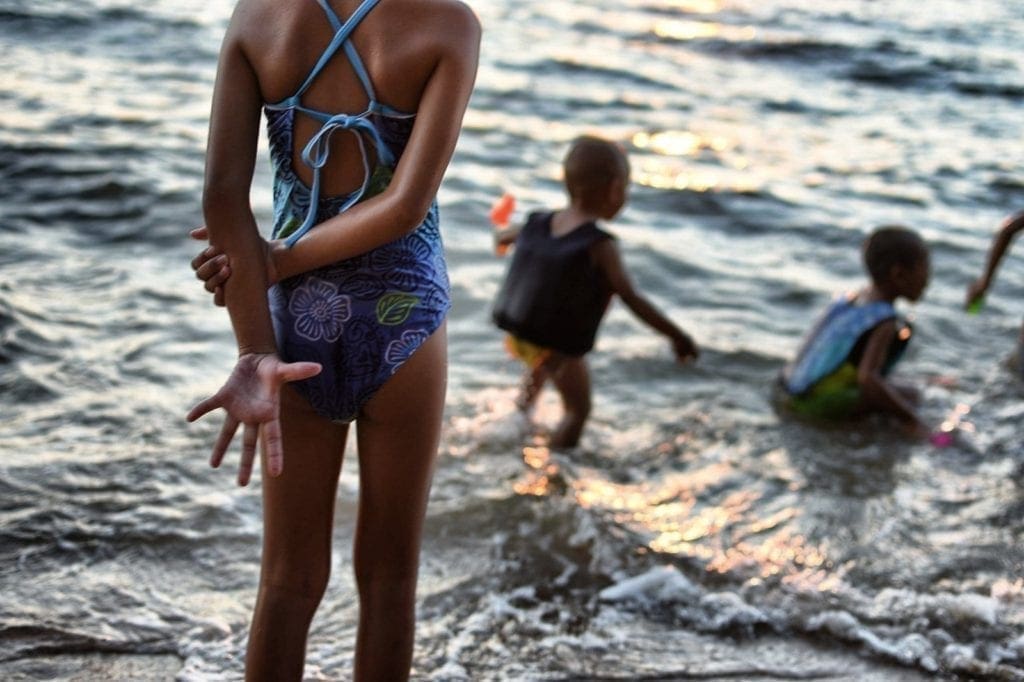Pain and fear.
That’s what you can read in the eyes of little Ploy, a Thai girl of only 11, who clutches a stuffed rabbit to her, as if to find comfort. A guest for over a year and a half at the Take Care Kids Shelder in Pattaya, a voluntary and charitable organisation, the little girl has a story of the kind that touches the heart. Her mother ran away, leaving her with her father who, in turn, abandoned her, probably for money, to strangers whom Ploy called grandparents. However, caresses were immediately replaced by physical and verbal abuse. And according to medical reports, also sexual.
This is confirmed by the diagnosis of the psychologist who is following her today: “The child presents an evident regression. Her chronological age does not coincide with her mental age, which is still three. She presents behavioural and cognitive patterns that are not appropriate for her age, such as climbing the stairs step by step, playing with children much younger than her and treating them like dolls. Or the occurrence of nocturnal enuresis.
Ploy still wears a nappy. Other symptoms added to his already dramatic situation: sleep disturbances, poor attention span, poor learning ability and inability to concentrate on seemingly simple tasks. No wonder, then, that little Ploy has a slowdown in school performance. This led her to attend a school for children with Down Syndrome because it was the one that most closely matched her IQ. Here she can keep up with others, without feeling different from her peers.
“Isolation characterises much of her time,” explains the psychologist. “She rules a world of her own, in which only fear never abandons her and which brings her into a state of permanent alarm. At the same time and almost paradoxically, to reduce and defend herself against her anxiety, she dissociates herself from the world around her. She immobilises and stiffens herself cognitively and often also physically, as if frozen, or worse, under emotional anaesthesia’.

A stolen childhood
Ploy is not the only child to have experienced this hell. In his country, Thailand, considered by many to be a true paradise on earth, there are many children who do not have the opportunity to enjoy their childhood. Although there are no official figures, according to recent estimates by Ecpat (End child prostitution pornography and Trafficking) and the World Health Organisation, approximately 2.5 million children worldwide are victims of sex trafficking. One in four is a victim of severe physical and sexual abuse. Most often the perpetrators are parents or family members.
The most economically unstable countries, such as those in southeast Asia, including Thailand, which has always been associated with violence and child abuse, are the ones to record this type of situation. The Thai government, however, has never wanted to make public, the exact data on crimes involving paedophilia and child pornography in this country. And it was in a Thai city, Pattaya, that the Take Care Kids Thailand Foundation was born in 2010.
Take Care Kids Thailand Foundation
The voluntary and charitable association that supports and shelters children victims of abuse, trafficking and violence bears the name of Giorgio Lusuardi. An Italian journalist who has always loved South East Asia decided to undertake this challenge. “What we are doing is but a drop in the ocean,” he says, “but the ocean, after all, is made up of drops.” Since its foundation, the Take Care Kids Thailand Foundation has collected many drops, children to whom it has tried to give back hope for a better life, or simply a smile.
Not only children, however. The association is also interested in single and unemployed mothers in serious financial difficulties. The aim is to find them a job and, at the same time, provide an education for their children, covering the school fees that amount to around 250 euros per child per year. This type of support lasts for a maximum of two years so that other mothers and children can receive the same help.
The Take Care Kids Thailand Foundation currently houses eight mothers and 11 children. In addition to them, 14 other children are alone in the world or have parents who cannot take care of them because they are drug addicts, violent, psychopaths or have HIV. It can be called Italian excellence, in every respect, not only for the financial support it receives annually. But also and above all for the support given to each of its guests, modelled and measured according to each one’s needs. An approach that is different from the governmental structures in Thailand, where the child’s drama and needs are not looked at but only managed with medicines.
Love is the first medicine
It may sound utopian, but the Take Care Kids Shelder, before being an association, before being a ‘shelter’, is a family, where it is essential to feel welcome and loved. No drug treatments are used unless strictly necessary. The first medicine is love, followed by care, patience and adequate attention for each child. Some children are more fragile than others, such as Ploy, who need to be looked after more strongly. Not only that, the strongest are taught to support the weakest. It teaches responsibility.
Only in this way can the Take Care Kids Thailand Foundation provide care and treatment, to offer a home to those who do not have one. And it is here that little Ploy, day after day after years of violence and deprivation tries in small steps to regain the childhood that was cruelly taken from her. His path, however, is still long. You can see it in his eyes, so deep and so lost that they radiate only fear and unease. Fear of a look, a smile, a hug. Fear of loving and being loved.

